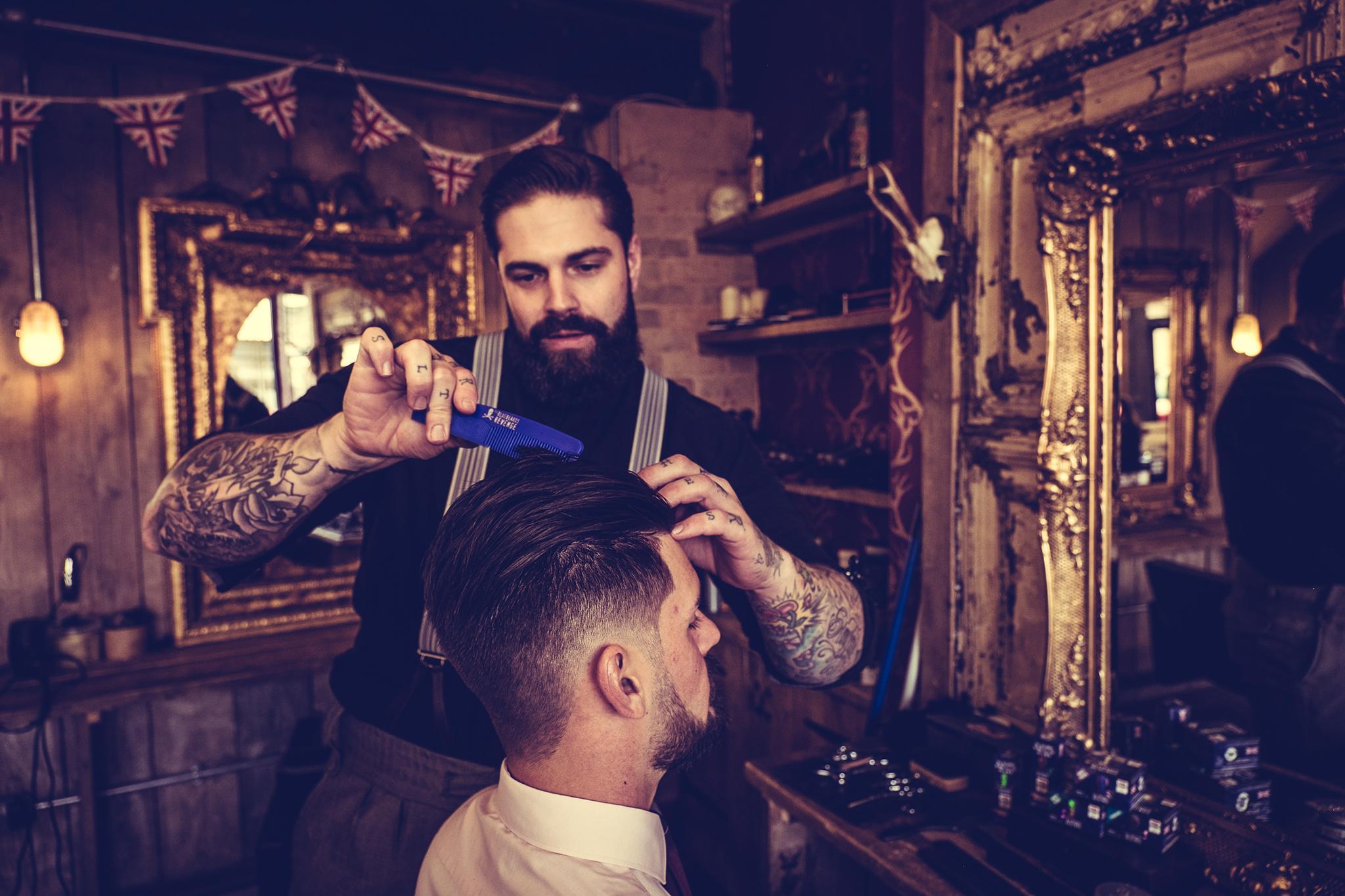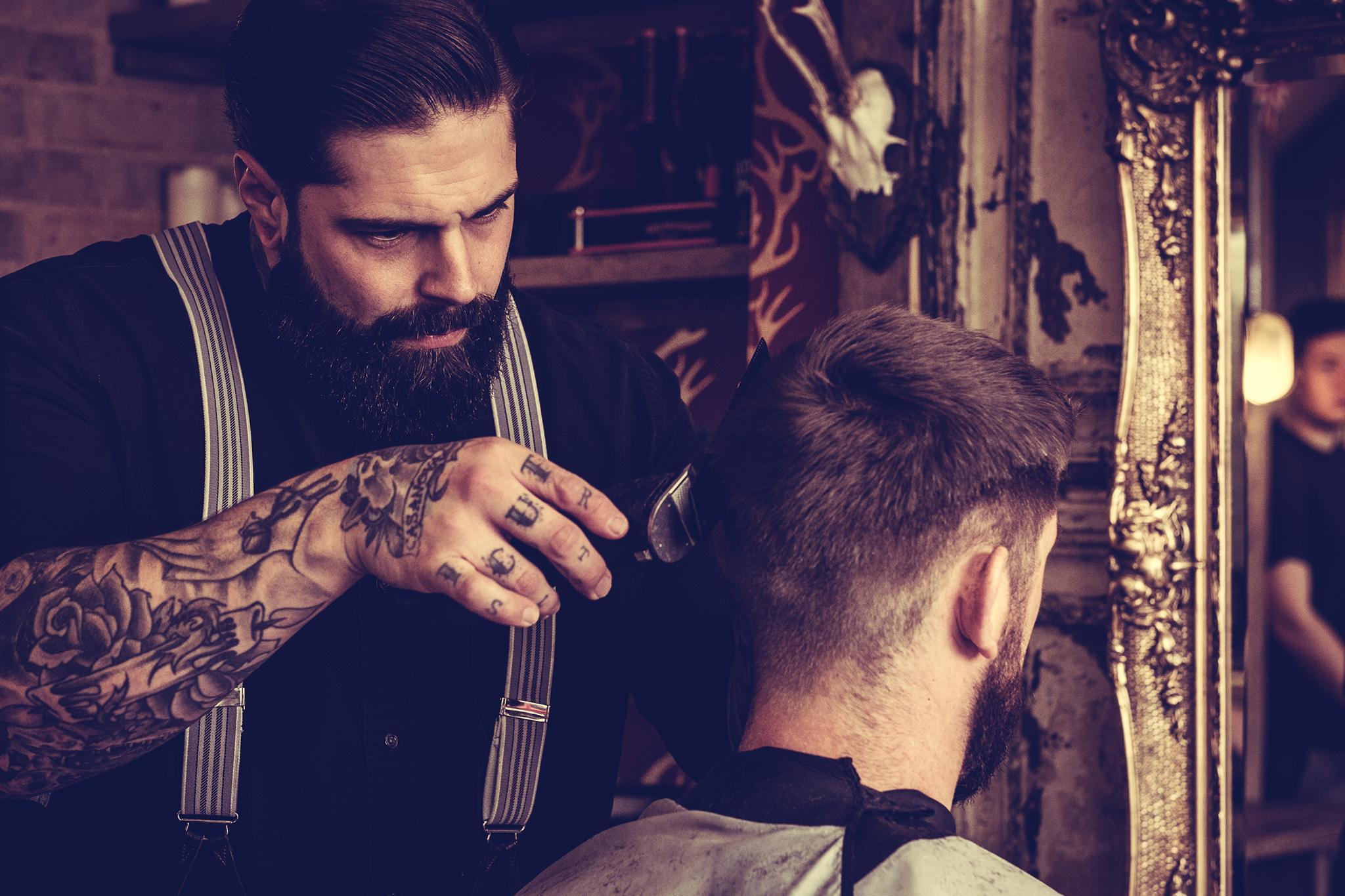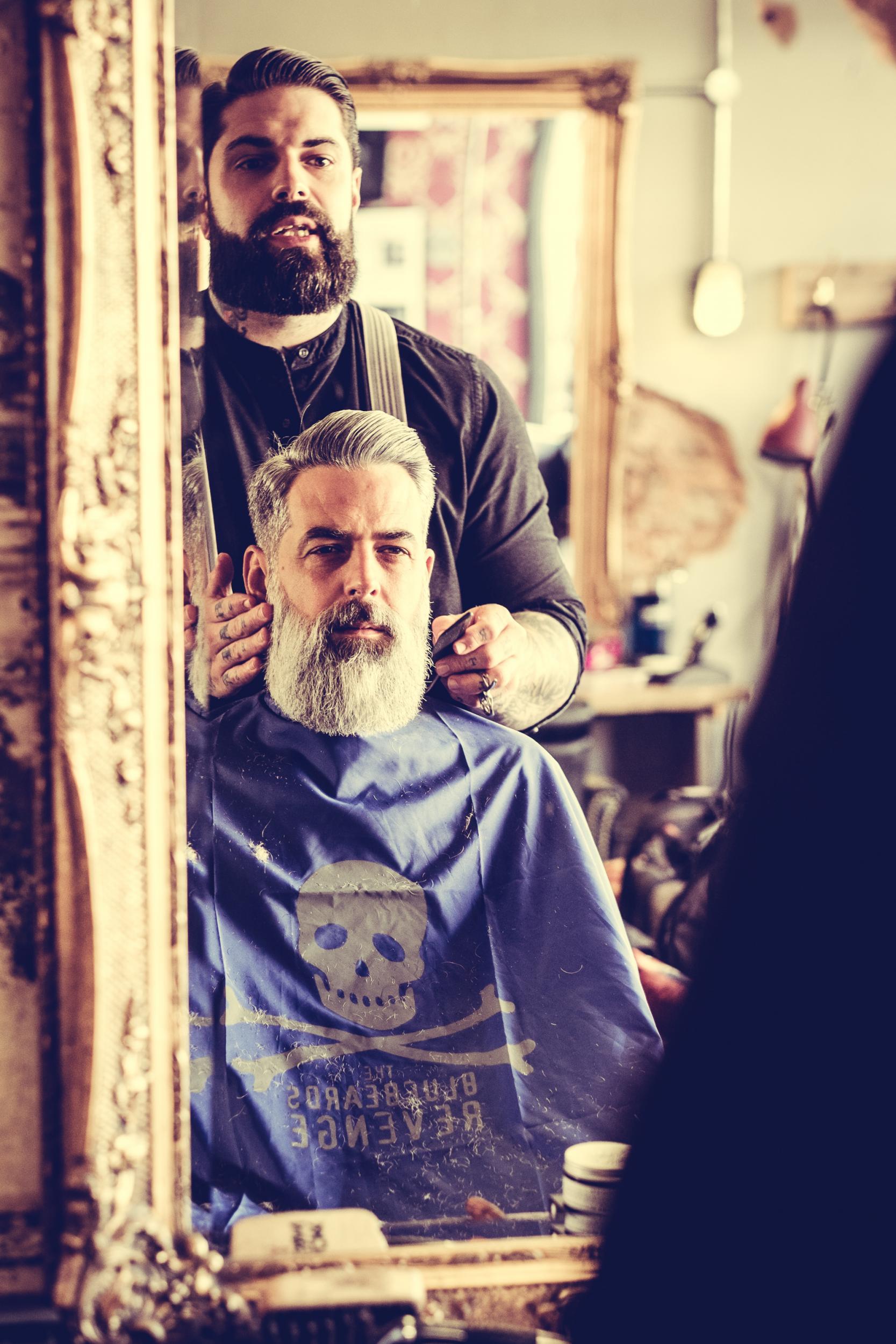Hairdresser turns barbershop into safe space for men to discuss mental health
Founder of Lions Barber Collective talks to The Independent about why he turned his place of work into a safe space for men to freely talk about their mental health

Your support helps us to tell the story
From reproductive rights to climate change to Big Tech, The Independent is on the ground when the story is developing. Whether it's investigating the financials of Elon Musk's pro-Trump PAC or producing our latest documentary, 'The A Word', which shines a light on the American women fighting for reproductive rights, we know how important it is to parse out the facts from the messaging.
At such a critical moment in US history, we need reporters on the ground. Your donation allows us to keep sending journalists to speak to both sides of the story.
The Independent is trusted by Americans across the entire political spectrum. And unlike many other quality news outlets, we choose not to lock Americans out of our reporting and analysis with paywalls. We believe quality journalism should be available to everyone, paid for by those who can afford it.
Your support makes all the difference.Tom Chapman, a barber from Torquay, lost a friend – Alex – to suicide around two years ago.
“I was completely unaware he was going to take his life,” Chapman recalls. “It was something that made me think we need to do something as a prevention, something that will kick in before.”
A year later, he set up the Lions Barber Collective, which is in the process of becoming a registered charity, with the aim of transforming barbershops into safe, confidential, non-judgemental spaces for men to talk about their mental health with their barber in 2015.
“The biggest thing I’ve done is let it know publicly that it is okay to talk to me,” he tells The Independent.
The statistics prove that more men kill themselves than women (76 per cent of suicides in the UK were by men) and that Alex was not a lone figure. Suicide is the biggest killer of men under 45 in the UK and in 2014, over a quarter of all suicides in the UK were by men aged between 45 and 49.

CALM, the campaign against living miserably, suggests men and boys are more affected because of the pressure they feel to always hold it together, look strong and not weak and consistently be in control of themselves and their lives.
The stigma which still exists in society surrounding mental illness coupled with societal expectations for men to “man up” and not show if they are feeling anxious or down makes it particularly hard for many men to feel comfortable opening up about their mental health.
“When I talk to people or men share their stories through the Lions and they get a great response and are supported they feel shocked as they expected to get some stick and be told to ‘man up’", Chapman says.
The Lions have teamed up with The Bluebeards Revenge range of male grooming products to raise awareness through imagery and information on the brand packaging including a Lions hair gel where all proceeds go to the organisation. The group also hosts free drop-in support groups with trained support workers and go on walking events where anyone can join to meet up, walk and talk. Working alongside various suicide prevention charities and Public Health UK, some of the ‘Lion’ barbers will soon receive specific training on suicide intervention to recognise the signs of mental health conditions, provide a non-judgemental ear and sign-post to charities like The Samaritans.
“We’re not trying to make barbers counsellors, our trained barbers will have the knowledge to link from society to all these amazing organisations“ he says later stressing that part of the appeal is that the surroundings of a barbershop are not “clinical”.
Chapman speaks to a client about their mental health every day. Customers pay for their haircut, as normal, and then can chat if they want. Some specifically come to see Chapman because of his experience in this area while other customers, who may have been with him for the duration of the 15 years he has been hairdressing, come along just for their cut.
Paul, 30, happened to be visiting Chapman’s barbershop in Torquay (Top Chapman Hair Design) for a haircut amid a dark period of depression.
“I reached a point around October 2015 where I felt really depressed,” he told The Independent. “I lost all motivation to do anything, stopped working properly, stopped making an effort with my partner, friends and family and ended up having daily suicidal thoughts. It was difficult because on paper my life was good and I should have been happy, I just wasn't and that made me feel even worse. I was driving to and from work crying for no real reason, I would sit and stare at nothing for hours feeling numb and unable to do anything which would result in me feeling angry with myself as I used to be a very productive and hard working person.”

While having his hair cut, he ended up having a general chat with Chapman about life and work when Paul realised “I was actually being very negative about everything and he [Chapman] was doing his best to put a positive spin on each thing I was saying”. Chapman then spoke about what he was trying to achieve through the Lion’s Barber Collective.
“I left his salon that day and went home and read up more about the Lions and then just read loads of other articles about depression and anxiety and some of the statistics made me realise I am not alone in this and it is nothing to be ashamed of. Just knowing this made me feel a lot better,” he explains.
Unfortunately, Paul’s depression took a downward spiral the following day and he experienced a breakdown. He called his parents for help who took him to his GP where he received treatment for anxiety and depression through counselling and medication. Today, he says “the good days outnumber the bad” but he does still experience “pretty awful” bad days. After being signed off counselling, he is still on medication and visits Chapman’s ‘Lion’s Den’ support group which he says offer great advice and further reassure him he is not alone.
“If I hadn't been to see Tom the day before, there is no way I would have felt comfortable reaching out for help and who knows where I would be now."
Recently, Chapman conducted a survey which found men see their barbers more than their GPs, they also tend to see the same barber more regularly rather than the ever-rotating circle of whichever GP is available at the surgery down the road.
“If someone is coming in every week, you tend to get to know them very quickly. If they come in one week it can be very natural to see [warning] signs,” he says and once you have known somebody a long time, clients tend to naturally open up more anyway.
Additionally, clients can expect a level of trust and intimacy at the barbershop which they can then leave there, without having to worry about their personal conversations being infiltrated into their personal life too much.
“It’s a lot of trust and intimacy, you are in their personal space, you’re touching their head, ears and neck and not many blokes touch each other like that. It is a real personal, intimate situation,” he says. “If you’re cutting their hair, they are trusting you to make their hair look good."
Chapman , who was recently awarded a Points of lights award by Theresa May for his scheme, says his groups are also important just to provide a place to chat, even if about every day stresses of work, someone does not have to be suicidal to visit there. He hopes his organisation can act as a preventative measure before things get worse and likens the advances in cancer awareness probably being linked to lower death rates for people with cancer
“If people are talking about suicide and mental health more and getting stuff of their chest, then hopefully this will act as a prevention and bring down the number of suicides."
You can call Samaritans free, any time from any phone, on 116 123 (this number will not appear on your phone bill), email jo@samaritans.org or go to www.samaritans.org to find details of your nearest branch
Join our commenting forum
Join thought-provoking conversations, follow other Independent readers and see their replies
Comments